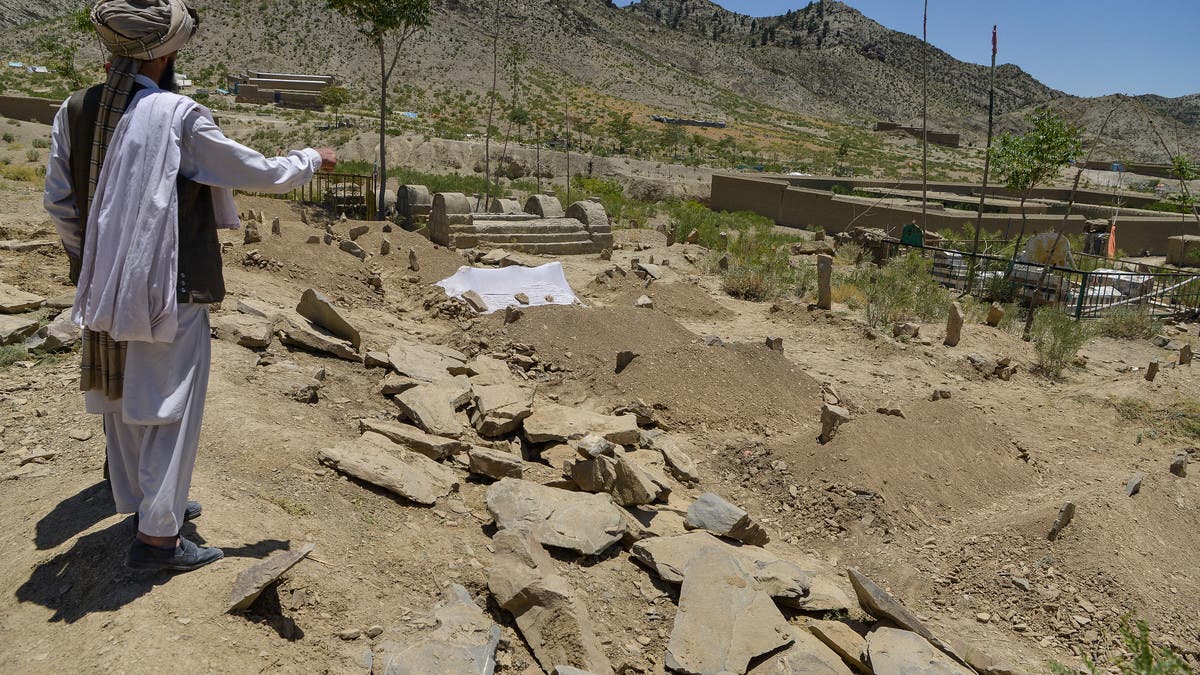Village life has always been tough for Afghans in the rugged mountains of the east, but compared to what they are enduring today it was paradise.
A 5.9-magnitude earthquake rumbled through the area last Wednesday, killing more than 1,000 people, injuring three times that many, and leaving tens of thousands homeless.
For the latest headlines, follow our Google News channel online or via the app.
“If life before was not really good — because for years there was war — the earthquake has made it even harder for us,” says Malin Jan, who lost two daughters in the quake.
All 14 houses in his village of Akhtar Jan were flattened, and survivors — including some from outlying hamlets — are now living in tents among the ruins.
Two small makeshift camps have been set up in dusty gardens, with stunted grass grazed by three cows, a donkey, two goats and a flock of chickens.
In tents pitched in a circle, about 35 families — more than 300 people including many children — are trying to survive.
Living in such close proximity to non-relatives is anathema to Afghans — particularly in the conservative countryside where women rarely interact with strangers.
Sanitary conditions are likely to deteriorate rapidly — there are no toilets, and people have to draw water from a well to wash.
“Before the earthquake, life was nice and beautiful,” says villager Abdu Rahman Abid.
“We had our houses and God was good.”
He gives a gruesome count of those he lost in the rubble — his parents, his wife, three daughters, a son and a nephew.
“The earthquake killed eight members of my family and my house is destroyed,” he says, looking weary.
“There is a big difference now. Before we had our own houses and everything we needed. Now we have nothing and our families are living in tents.”
Neighbour Malin Jan is already looking ahead, fearful of what the future holds.
The harsh winter, which lasts almost five months in this remote mid-mountain region, will arrive in September.
“If our children stay in this situation their lives will be in danger because of the rain and snow,” he says.
Massoud Sakib, 37, who lost his wife and three daughters, also fears for the months ahead.
“Even living in a house is difficult during winter, so if our houses are not rebuilt by then our lives will be in danger,” he says.
On Saturday, the UN's top official in the country, Ramiz Alakbarov, arrived from Kabul by helicopter to visit the region — including the village of Akhtar Jan — with representatives of each UN agency.
Alakbarov was moved to tears as he met a young girl and was offered tea by a survivor, praising the “resilience and courage” of the people.
But their tenacity only stretches so far.
Interviewed by AFP, the Afghan minister of health, Qalandar Edad, warned of the “mental and psychological” suffering of victims.
Malin Jan said the villagers were doing their best to help each other through the crisis.
“When a family is hit by a tragedy, the others naturally come to surround and support them,” he said.
“Everything is affected… we console each other.”
But they cannot do it alone, adds villager Abdul Rahman Abib.
“We ask the world to help us as long as we need it. It must share our pain.”
Read more:
China to provide $7.5 million in humanitarian aid to Afghanistan: Foreign ministry
Taliban call for release of frozen funds after deadly Afghanistan earthquake
Taliban government appeals for more aid after deadly Afghanistan earthquake

 World3 years ago
World3 years ago
 World3 years ago
World3 years ago
 Business1 year ago
Business1 year ago
 Entertainment7 years ago
Entertainment7 years ago
 World7 years ago
World7 years ago
 Entertainment7 years ago
Entertainment7 years ago






